Advertisement
Commentary
Judy Blume taught 11-year-old me: ‘I might be normal, and I am not alone’
Resume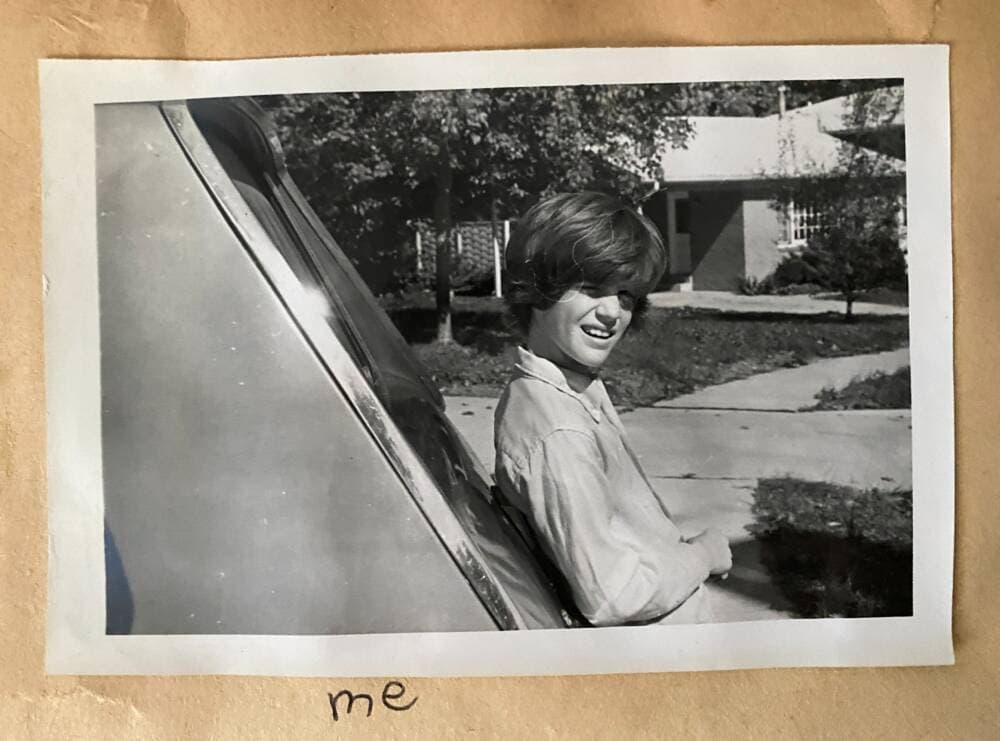
My head is spinning in the way it does when time folds in on itself, and I simultaneously feel like both the former confused-elementary-school-kid iteration of me and the current confused-adult edition.
In other words, I’ve just re-read “Are You There, God? It’s Me, Margaret” and watched the new film version of the 53-year-old book. I also unearthed the diary into which I scribbled my observations when I was 11 years old, the same age as the title character.
Whoa.
Relatable content plus decade-hopping can kind of do a number on you, I guess.
But never mind me and my wobbly ways: You should see the movie! It opens today, and it’s worth the half-century wait. The film is far more faithful to Judy Blume’s iconic novel than I had dared to hope.
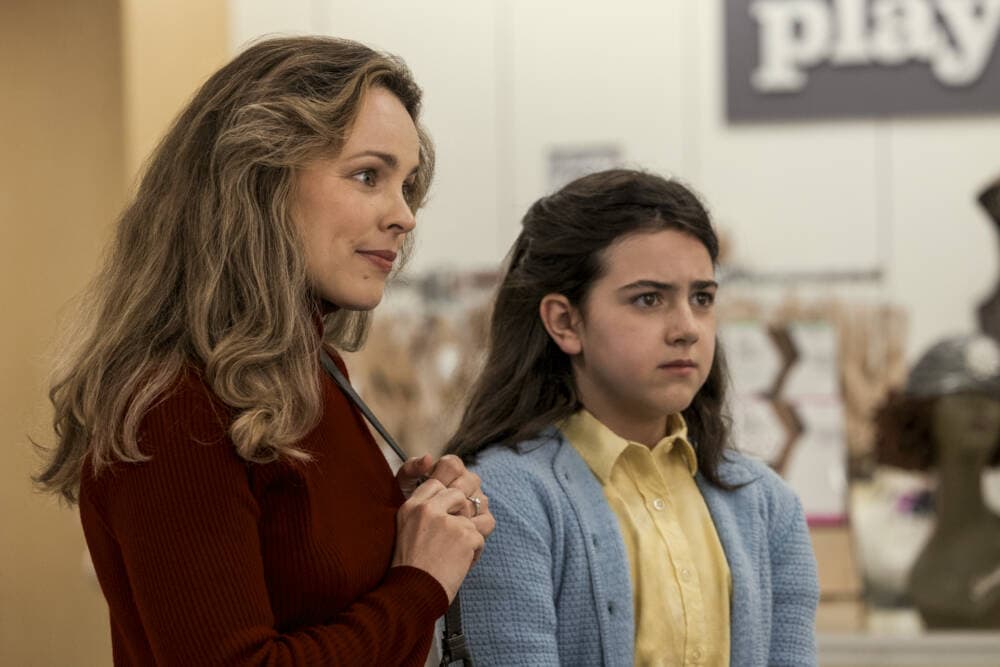
The moviemakers made the wise decision not to update the story. It’s set in the year that the book was published: 1970. If you didn’t live through that era, then you might have been misled enough by pop culture myths to assume that by 1970 the entire country had become, basically, Woodstock. Wrong. In fact, a whole lot of the U.S. at that point was much more like The Lawrence Welk Show, only with fewer accordions. “Are you there God? It’s me, Margaret” showed up in that square, repressed environment, and it was groundbreaking. Revolutionary. Life-saving.
The chapter book for young readers about sixth-grader Margaret Simon became the vintage equivalent of a viral sensation. It was a literary achievement so great, in fact, that it eventually wound up on banned-book lists.
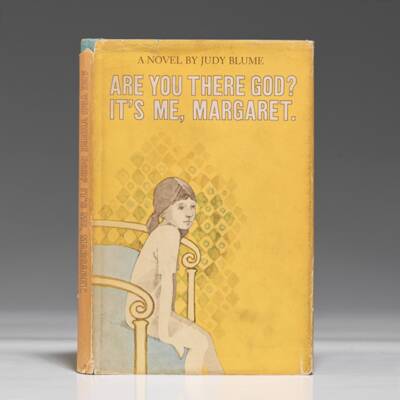
The powers-that-be were concerned about the forces of evil corrupting the minds and souls of the pre-teen set by way of a fictional character, who is navigating friendships, puberty, religion, bra purchases, crushes, periods, family dynamics, and inscrutable secret club rules about not wearing socks.
My mom handed me the book one afternoon when I was 11 years old. I was almost finished with sixth grade and was what my frenemies called “undeveloped” and was prone to shouting during supper that nobody understood me. Somehow I knew the book demanded my immediate attention.
I read it three times in a row, and then loaned it to my friends — including those whose parents had forbidden them from reading this “filth.” I never saw my copy of the book again; my friends loaned it to other friends who loaned it to other friends and so on in an endless connected chain of girls trying to help each other decipher … everything.
The book taps into that blend of innocence and urgency, the beautiful and perilous passage that is sixth grade. And it marked the first time I’d ever experienced a work of art that seemed to have sprung to life after spying on me. With every page I turned, I felt more convinced: I might be normal, and I am not alone. Plus, I mean, what 11-year-old wouldn’t be flattered that this Judy Blume person decided to read her mind?
For example, early in my sixth-grade diary, I scribbled: “In math, we had a test. It was easy. You know, I sort of think I need a bra.” Early in the novel, Margaret says: “I just told my mother I want a bra. Please help me grow God. You know where.”
Sorcery, right?
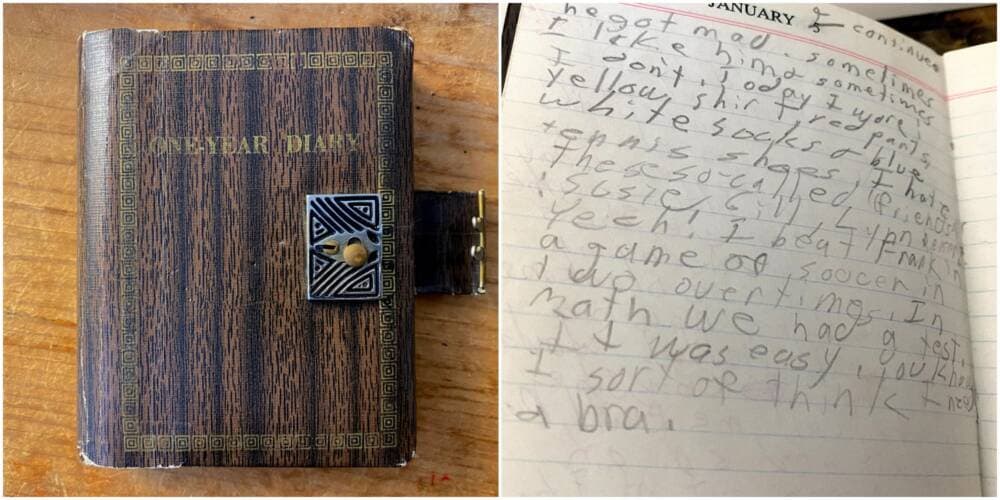
From my diary: “I got a bra! I didn’t ask or anything.”
From my diary a few sentences later, as bra reality sunk in: “I had to hold back my emotions and I really can’t figure out what I felt like. Sort of depressed and sort of happy and sort of foolish and, well, I just felt weird. It is tight and sort of itchy.”
Preach, little me, preach.
In her down-to-earth style, Blume gifted the world with a romp that made me laugh as I, like Margaret, muddled my way through 11-dom, toggling between childhood and the mysteries that lay beyond.
Margaret’s friends make a rule that they need to tell each other when they get their periods. My fellow 11-year-olds and I fit right in — all before any of us had read the book. In my diary, I reported:
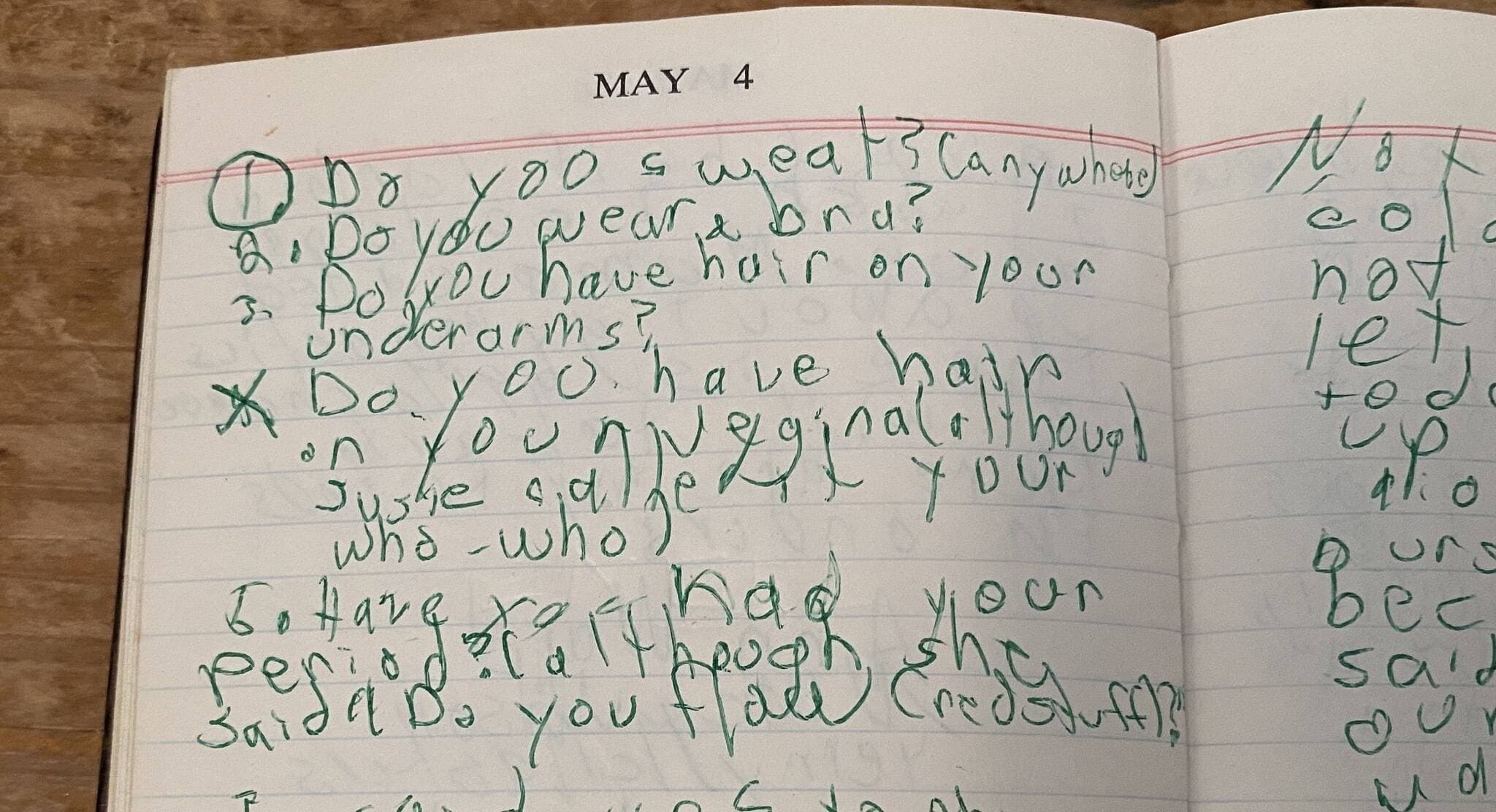
“Susie devised a rating system. Here are the five questions: 1. Do you sweat? (anywhere). 2. Do you wear a bra? 3. Do you have hair on your underarms? 4. Do you have hair on your vagina (although Susie called it your who-who) 5. Have you had your period? (Although she said “Do you flow (red stuff)?”
I can practically still smell the Juicy Fruit we were chomping on as Susie ordered us to recite our scores.
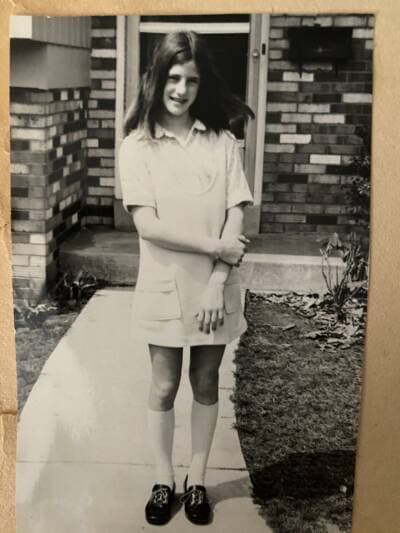
What hit me as I watched the movie, though, is how much the culture has changed since I first encountered Margaret. I was lucky because my mom and dad were the exception, but most kids in my orbit — and, I think, beyond my orbit — did not get accurate, euphemism-free, non-judgmental information from their parents about the proverbial facts of life. Thus, in the early 1970s, and for years upon years after that, a lot of girls didn’t merely get a kick out of Margaret: the book felt like a necessity. It was an education and it was validation and it was a game-changer. The world was a straight-talk desert and this novel served as the oasis.
For more recent generations of kids, the book and the film feel more… optional. Sure, they offer charming enrichment and entertainment, which is fantastic. But long gone is the era when virtually no elementary schoolers had access to what’s offered by the novel and the movie.
Not that I’m complaining. This relative lack of desperation is a sign of progress! It’s something to applaud! As a society, we’ve inched forward from automatically saddling girls with shame because they have bodies.
Still, I confess that as the credits rolled, I did feel oddly wistful. A small part of me wished today’s crop of fans could experience what my generation did — the joy of being in the first wave of tweens to join Margaret for that bold and daring leap into polite-people-don’t-talk-about-these-subjects-ville.
That, I fully realize, is an inane lament. A powerful book has become a powerful movie, and more power to us all. The tale is timeless, the human condition is what it is, and I should declare victory and go home.
For inspiration in that regard, I turn to the words my sixth-grade self scrawled in green ballpoint pen on the diary page for the very day that I type this essay in 2023. Yup, I reckon this’ll do:
“April 25th…. If something happens to me and they read my diary, I’m afraid they won’t have much to say about it. I do not lead a very interesting life. I learned a new way to jump rope.”
This segment aired on May 4, 2023.

